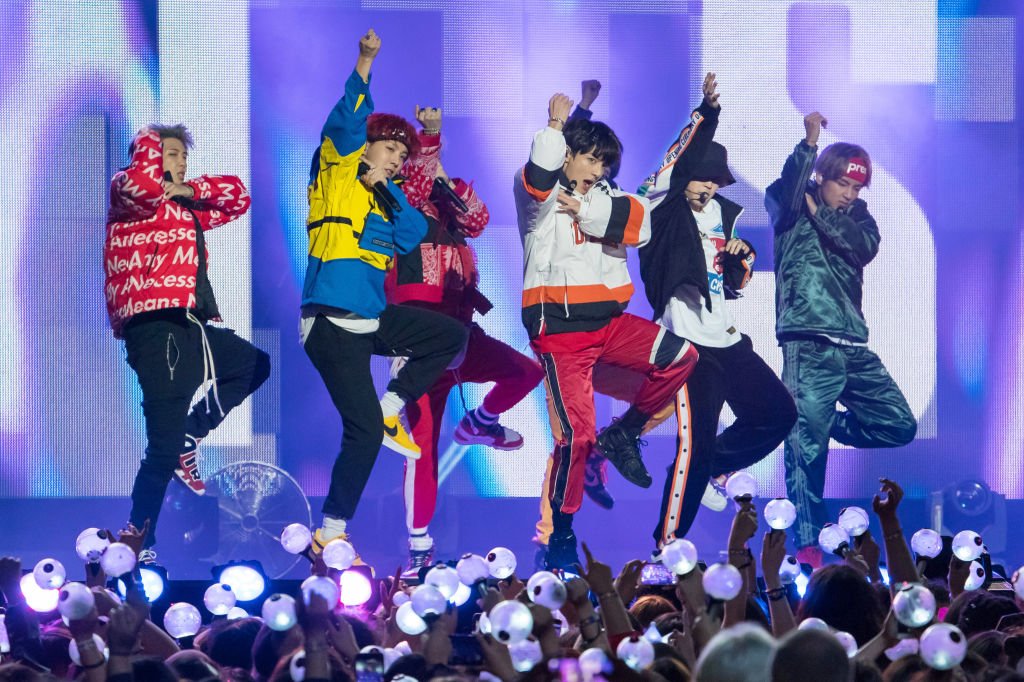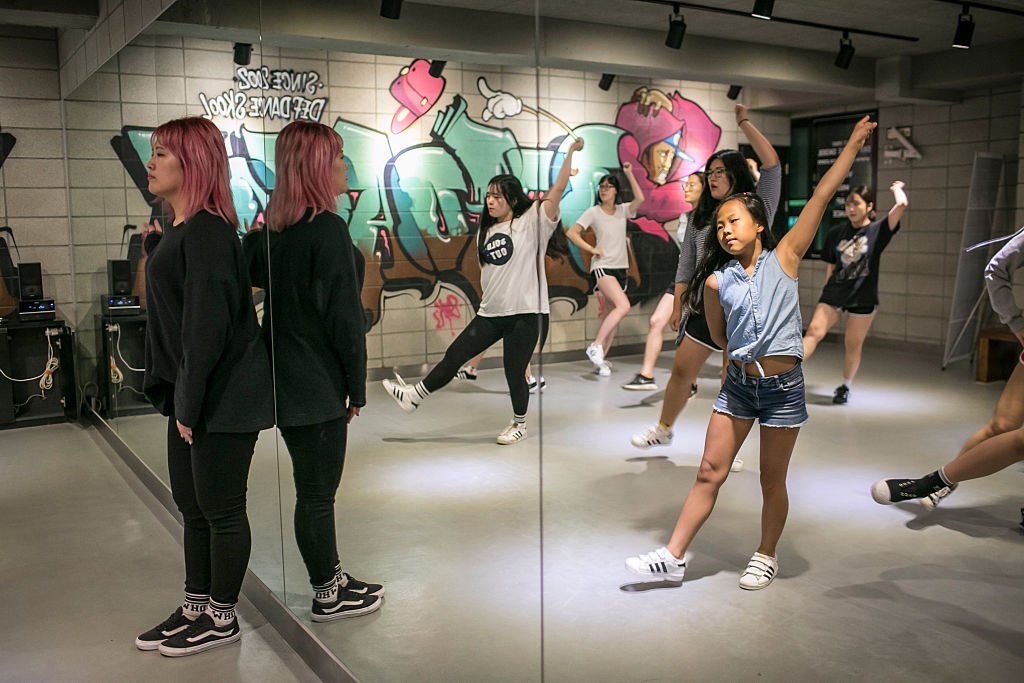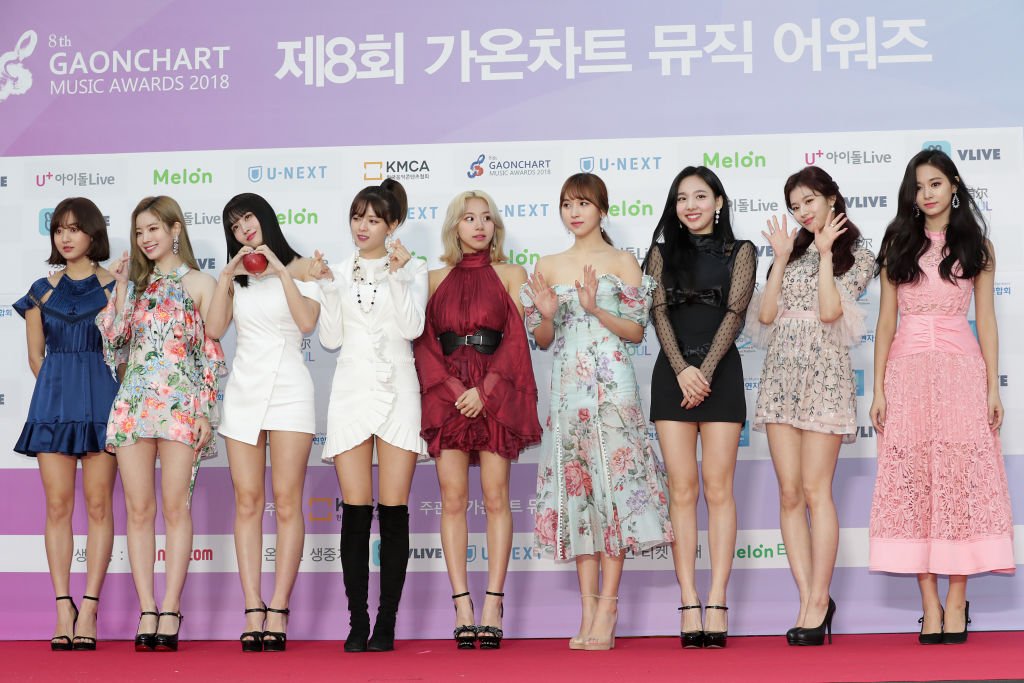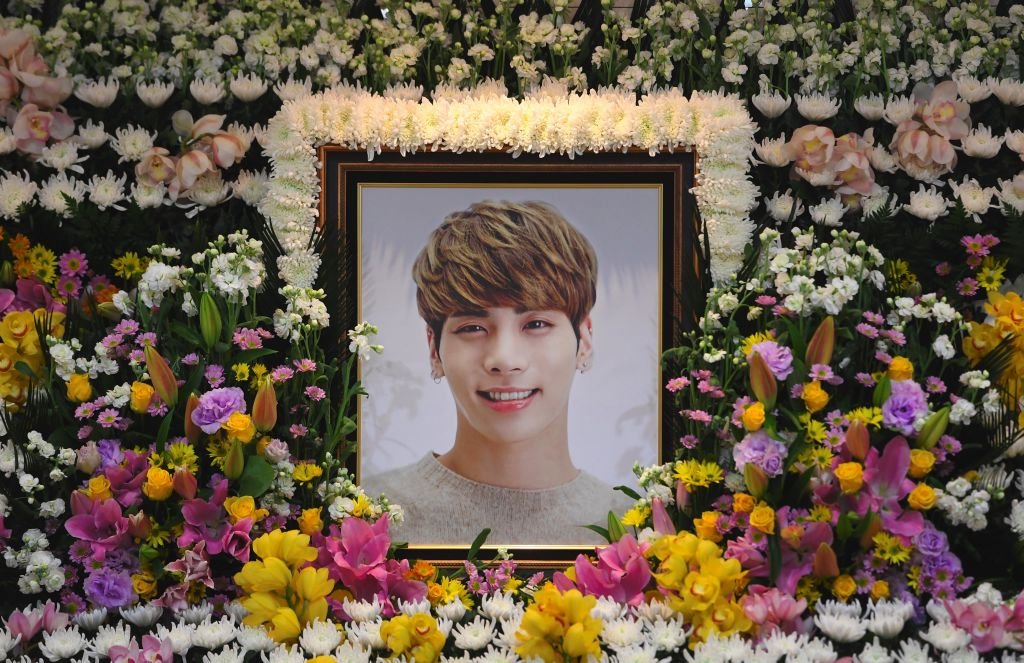
Industry Insiders Reveal the Immense Pressure on K-Pop Idols to Be Perfect
The perfection expected from K-pop artists isn't attained by luck. They work so incredibly hard that it goes well beyond the public imagination - revealing the K-pop industry's unhealthy standards and dark side.
South Korea’s K-Pop idols are known for their perfect smiles and faces, impeccable choreography routines, trendy and catchy hits, and worldwide success. They never falter.
But if you think it's pure talent and luck, think again. The truth is, behind the push for perfection is a dark, unforgiving, and often punishing dedication to their dream.

Singer Jeon Jungkook from k-pop group BTS in a recording studio | Source: youtube.com/BANGTANTV
Before diving into it, we should first understand the difference between the East and Western vision of success. Culturally, Asians are known for their hard work and impeccable work ethic, paired with sheer determination to achieve their goals, no matter what.
The music industry is no different. While the American music industry is filled with horror stories about sexism, abuse, and erasure, the behind-the-scenes of the K-Pop industry has their own share of issues to unpack.

Korean K-pop band 'BTS' are seen at 'Jimmy Kimmel Live' on November 15, 2017 in Los Angeles, California, 2017. | Source: Getty Images
The “perfection” that K-pop idols portray is a result of the massive expectation placed on them. A K-pop music columnist who has written for Billboard and the New York Times
with CBC News about the pressure of the KPop world saying:
"Just that word in itself [idol] gives the idea that they have to be perfect — they have to be the ideal standard of entertainer. That's a lot of pressure for a young person."

Lee Tae-rim, 10 (R), practices dance moves by a K-Pop girl band, Girlfriends, along with young women at Def Dance School on August 10, 2016 in Seoul, South Korea. | Source: Getty Images
Dancing schools like Def Dance School in Seoul are packed with kids and young teens aspiring to become K-pop idols. Many idols start training very young with some training from as early as kindergarten.
According to the Korea Institute for Health and Social Affairs survey, 40% of 458 elementary schoolchildren said they wanted to become athletes, artists, or entertainers.

Members of girl group TWICE attend the 8th Gaon Chart K-Pop Awards on January 23, 2019 in Seoul, South Korea. | Source: Getty Images
Thus it should be no surprise that becoming a K-pop idol is an exhausting process. Perfecting dance routines and singing is just the start. Then comes earning approval through one of the highly competitive and demoralizing auditions.
Then, if approved, they go to a K-pop boot camp. Filled with aspiring young teens, the hopefuls are assembled in small dorms and forced to follow extreme diet regimes, grueling rehearsal routines, and so on.

The portrait of Kim Jong-Hyun, a 27-year-old lead singer of the massively popular K-pop boyband SHINee, is seen on a mourning altar at a hospital in Seoul on December 19, 2017. | Source: Getty Images
The stresses of stardom and extreme pressure, unfortunately, results in many of these young kids developing severe mental health issues. This has been brought to light multiple times over the years, most especially after the suicide of the 27-year-old Kim Jong-hyun, lead singer of the group SHINee.
Kim is not the only
to lose a battle with depression. The number of deaths raised red flags about the grueling K-pop industry, with fans and idols
the importance of prioritizing mental health.
